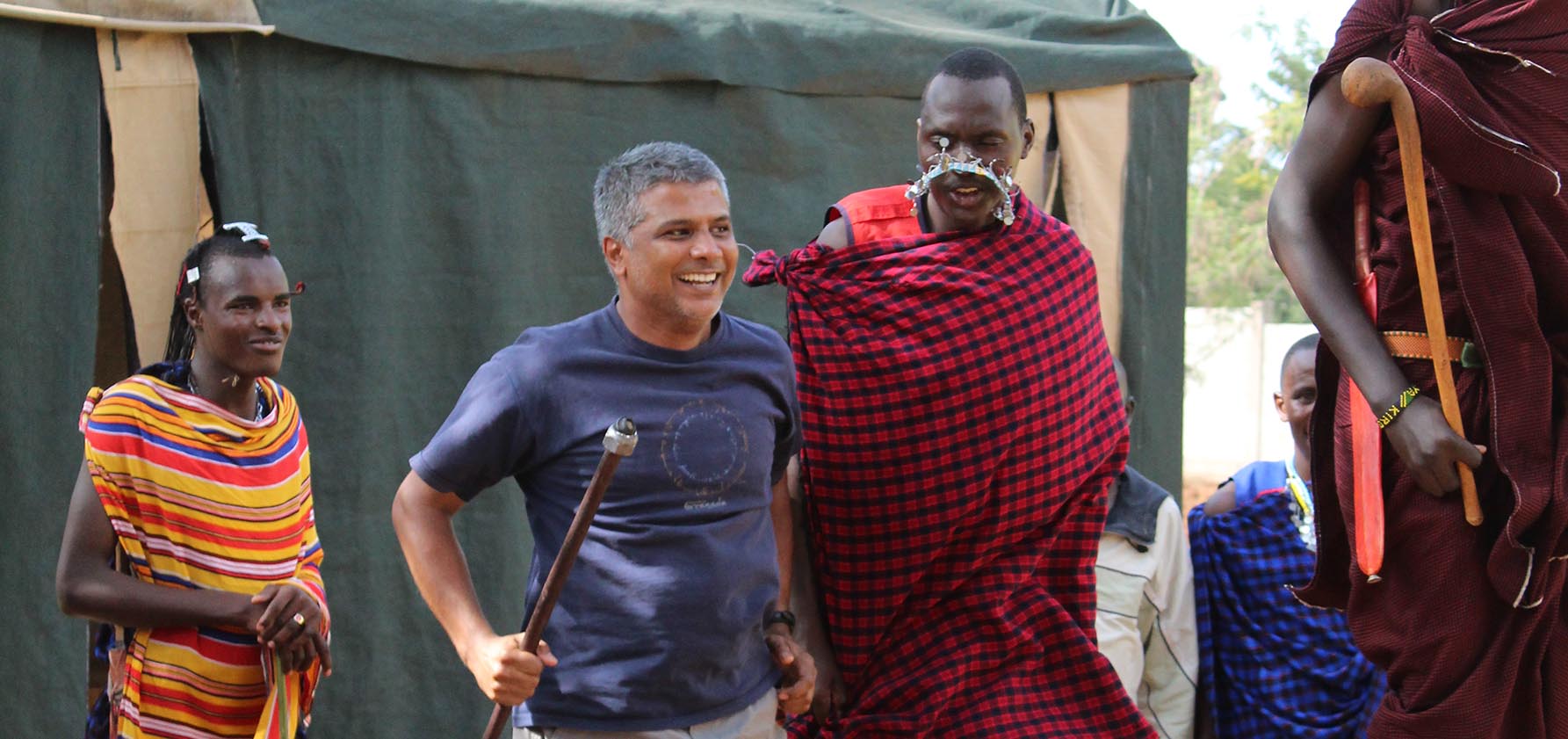
I was born in a society that the imperial British empire designated as India (Bombay); raised in a society that offered ways for my family, despite maintaining a second-class citizen status to those of European descent, to have a better quality of life than what may have been possible in India due to the inequities imposed by the western world, namely the United States. I acquired my education in the metropole, first at Oberlin College in Ohio and then Oxford University in the United Kingdom, and have since endeavored to traverse through various lands regulated by arbitrary boundaries of different nation-states. These experiences have led me to conclude that despite the various boundaries imposed on me on the premise of “origin,” nationality, religion, ethnicity, my home is only one place, Earth, and there is only one race/ethnicity I choose to identify with—the human race.
What drew you to your academic discipline?
As an undergrad, I studied biology, chemistry, and Islamic Studies. When I began looking at grad school options, I considered medical school, grad school for molecular genetics, or grad school for studying Muslim societies. In debating these options, a moment of clarity made the choice for me. If I went to med school or grad school for biology, the clinic or lab would be my world, but if I went to grad school to study Muslim societies, the world would become my lab. This thought subsequently led me first to pursue a masters in Islamic Studies and Humanities and then a masters and doctorate in anthropology.
What are your research interests and why are you drawn to them?
My primary research interests lie in studying the movement of identities and conditions of mobility. While pursuing Islamic Studies, I was interested in examining the diversity of interpretations of and practice of Islam by Muslims in different societies. This led me to examine how the conditions that facilitate mobility or that create immobility impact the capacities in which people frame their notions of belonging. I pursued this research within the context of experiences of Muslims along the East African coast. Over time, my interests expanded to examine how pathways of mobility are instrumental in enabling people to develop new dispositions to develop different identities across different spaces, at different times. This has resulted in my research now focusing on examining the impact of transnational networks across the Indian Ocean world in creating emerging pathways of mobility for people across the global south to challenge the imperial hegemony of the global north and develop new sites and destinations for situating different trajectories of hope and prosperity to frame their notions of belonging for the future.
Are there any specific experiences with students in class or outside of the classroom that stand out to you as being special?

My best experience of teaching at Moravian was taking ten students to Tanzania for a study abroad course for 18 days in January 2019. It was the first time ever that undergraduate students at Moravian traveled to the African continent as part of a course. It provided them an opportunity to deconstruct their world views by engaging with Africans and exploring ways in which they shared common experiences as human beings. In addition to the different ways in which students learned about their connections to the broader world through this travel experience, a particular aspect of the trip that stands out was playing the game “Cards Against Humanity” with the students well into the night on at least three occasions when we were in a remote rural locale and had no access to any digital devices.
Share something about yourself that people may not know.
I am a Trekkie.
What do you love most to do with your free time?
I love to do nothing if I can ever find free time. Between growing demands at work, family responsibilities, and everything else, I don’t know the last time I really had “free” time. So, if I find myself having a moment to myself, I aspire to indulge in nothingness. It is immensely peaceful, but the search for that peace remains more and more elusive!
What book, film, song, or piece of art has so touched you that you find it enduring/unforgettable?
Book: The Gay Science by Friedrich Nietzsche
Song: “Talkin’ Bout a Revolution” by Tracy Chapman
Art: The Scream by Edvard Munch
Movie: 2001: A Space Odyssey
I can never resist a good______.
Argument challenging continuing imperial nostalgia tied to construction and orientation of the inequities that constitute the modern western world.
Name someone who inspires you and tell us why?
My late mother is my hero and remains my source of inspiration for everything I do. She taught me to fight for what I believe in and always stand up and raise my voice for what I consider important.
What is the best advice you have ever received or a quote that stays with you?
Advice: “Don’t ever let those white mother******s tell you who you are and what you should be or do.”—Mr. Stanley, a Native American teacher at my high school
Quote: “Fly like a butterfly, sting like a bee.”—Muhammad Ali
Share something that makes you happy.
My family—they push all my buttons, but they remain the sole reason for me to continue doing what I do.